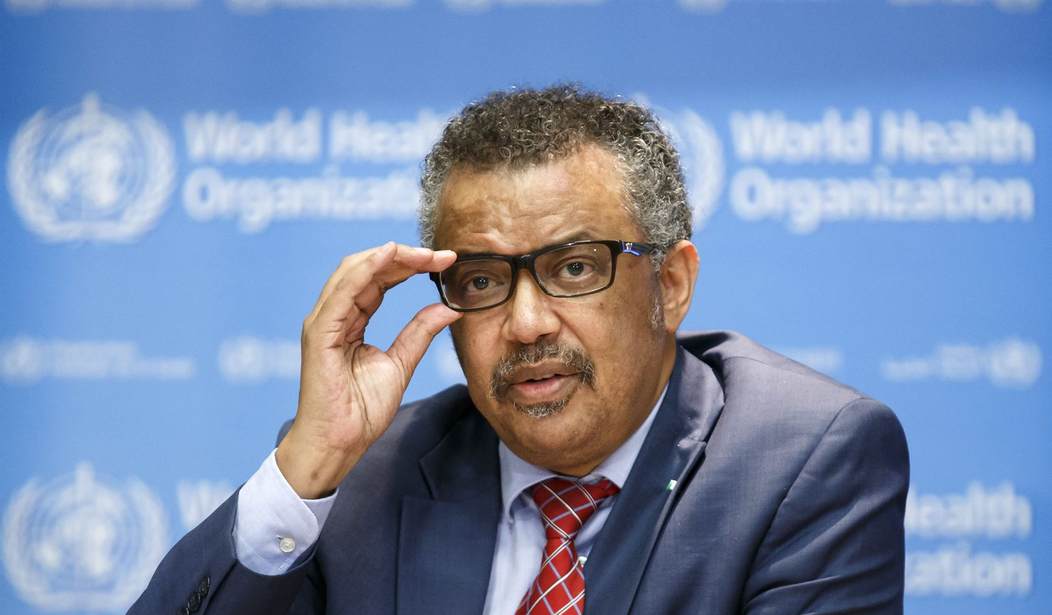The World Health Organization (WHO) just renewed its public health emergency of international concern (PHEIC) status for COVID-19 on Jan. 30. For those of us living in the real world, the obvious question is: WHY?
It’s particularly dangerous that the WHO would do this, because many countries around the world, the United States included, are bound by treaty to follow WHO guidelines on diseases. There are even amendments to the WHO treaty in the works right now that would essentially give the body increased authority to decide when an emergency is happening and what measures have to be imposed. That’s right: an extra-governmental body thousands of miles away over which you have no accountability power could decide without checks whether you are under lockdown or not. It would be the COVID lockdown situation on steroids.
It has been some time now since evidence emerged that lockdowns (imposed at WHO recommendation) did not provide significant benefits in stopping COVID-19, but did inflict significant harm. For instance, suicides, especially among young people, skyrocketed under lockdowns. A 2022 Johns Hopkins meta-analysis of multiple studies concluded that the lockdowns inflicted far greater harm than benefit. As for the COVID vaccines, evidence continues to come out on a weekly basis about their serious side effects. Multiple European countries have restricted young people from getting the COVID-19 vaccines, and in America, experts such as the Florida surgeon general have advised against the shot for young men due to the risk of myocarditis. Yet the WHO specifically pushed more vaccination in its Jan. 30 release.
”The WHO Director-General concurs with the advice offered by the Committee regarding the ongoing COVID-19 pandemic and determines that the event continues to constitute a public health emergency of international concern (PHEIC),” the WHO said in the release about its fourteenth meeting of the International Health Regulations (2005) Emergency Committee. “The Director-General [Dr. Tedros Adhanom Ghebreyesus] acknowledges the Committee’s views that the COVID-19 pandemic is probably at a transition point and appreciates the advice of the Committee to navigate this transition carefully and mitigate the potential negative consequences.” How kind of the WHO to acknowledge a possible “transition point.” Most of us transitioned to normal life a long time ago. The fact that we already had evidence back in March 2020 at the latest that COVID-19 probably had a 98% survival rate raises the question of why the WHO ever declared a public health emergency in the first place.
But the WHO is totally ignoring all the data on its failed COVID measures. “[Committee Members] recognized that pandemic fatigue and reduced public perception of risk have led to drastically reduced use of public health and social measures, such as masks and social distancing,” the WHO release mourned. “Vaccine hesitancy and the continuing spread of misinformation continue to be extra hurdles to the implementation of crucial public health interventions. At the same time, the long-term systemic sequelae of post-COVID condition and the elevated risk of post-infection cardiovascular and metabolic disease will likely have serious negative on-going impact on population.” No admission that COVID-19 vaccines can cause long-term cardiovascular damage, too. The mention of “misinformation” is part of a global push from various governments and international entities to increase censorship of free speech online. The WHO later recommended measures to target the “infodemic,” a term used to make supposed “mis- and dis-information” sound like a virus that requires government restrictions.
As Brownstone Institute previously noted, the WHO plans to tie its treaty to a global digital passport and digital ID.
The WHO even admitted that Omicron is a less serious variant, but added, “the virus retains an ability to evolve into new variants with unpredictable characteristics.” So apparently the PHEIC is extended on the off chance another bad variant of COVID develops? Does the WHO know something about the future we don’t know?
The WHO did advise not requiring COVID vaccination for entry into countries (the U.S. still does), and at one point seemed to equate natural immunity to vaccine immunity. But the WHO was also very focused on demanding more surveillance and data on COVID and vaccines. “The Committee expressed a need for improved surveillance and reporting on hospitalizations, intensive care unit admissions, and deaths,” for instance. An ending recommendation was, “States Parties should plan for integration of COVID-19 vaccination into part of life-course immunization programmes. Regular data collection and reporting on vaccine coverage should include both primary and booster doses.” I don’t know about you, but I sure don’t want an international, unelected body like the WHO, with a track record of failed policies, to have control over personal medical data and decisions.
Newsweek published an opinion piece the same day as the WHO decision that said of lockdowns and vaccines, “It’s Time for the Scientific Community to Admit We Were Wrong About COVID and It Cost Lives.” The medical student who wrote the piece acknowledged the medical community’s flawed approach to COVID: “We made science a team sport, and in so doing, we made it no longer science.” If only the WHO were willing to acknowledge that.
